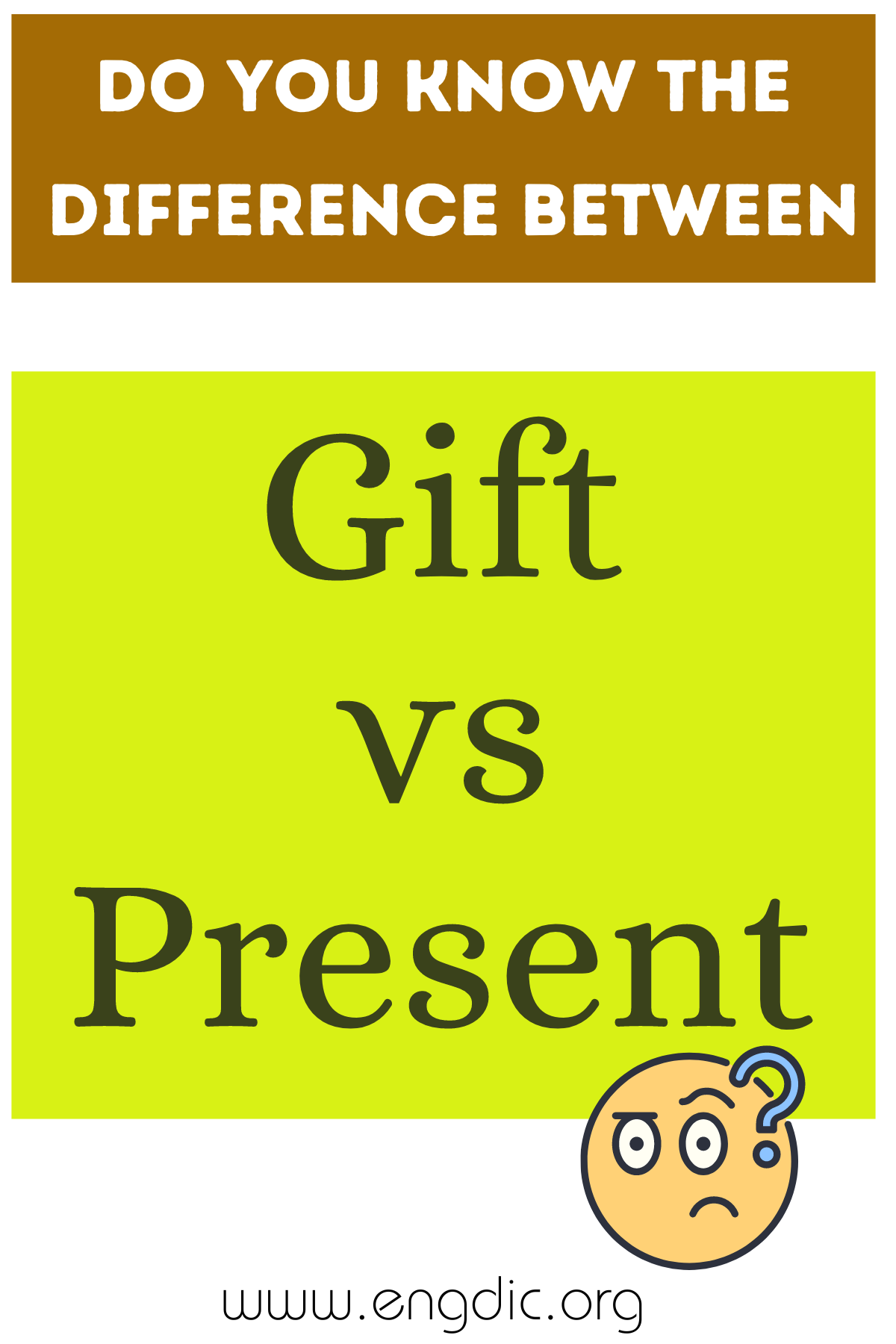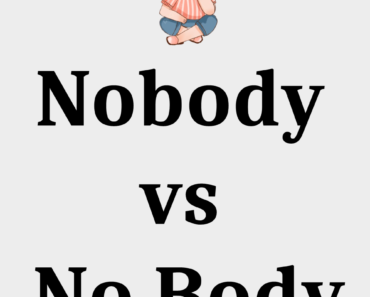A “gift” and a “present” are often used interchangeably, but they carry subtle differences.
“Gift” is more commonly used to describe a thoughtful offering given voluntarily without expectation of return, often highlighting the act of giving itself.
“Present” tends to be used more in social contexts, focusing on the tangible object exchanged.
While “gift” can carry a sense of formality or sentimentality, “present” is often linked to specific occasions, like birthdays or holidays.
However, the distinctions are not strictly observed in casual usage.
Gift
Definition: A gift is an item or service given voluntarily to another person without expecting anything in return, often to express affection, gratitude, or goodwill.
Usage:
- Occasions: Gifts are typically given on special occasions like birthdays, weddings, or anniversaries.
- Example: “He brought a beautiful gift to the wedding.”
- Corporate: In a corporate setting, gifts often express appreciation or foster business relationships.
- Example: “The company sent a gift to their top clients during the holiday season.”
- Charitable: Gifts can also include donations made to charities or individuals in need.
- Example: “She made a generous gift to the local food bank.”
Present
Definition: A present is a tangible item given to someone on a specific occasion or holiday, usually wrapped or prepared in some way to be given formally.
Usage:
- Celebrations: Presents are commonly exchanged during festive celebrations like Christmas or birthdays.
- Example: “The children eagerly opened their presents on Christmas morning.”
- Surprise: Presents can also be given spontaneously to surprise someone or brighten their day.
- Example: “He brought a present to cheer up his friend.”
- Formal: Presents are sometimes given formally in recognition of achievements or events.
- Example: “The award winners each received a present from the organizers.”
Both “gift” and “present” share the core concept of giving, but their differences lie in subtle nuances related to context and connotation.







